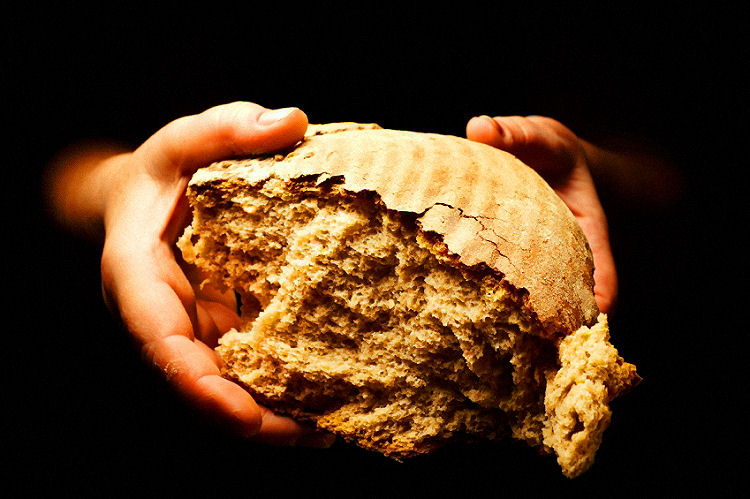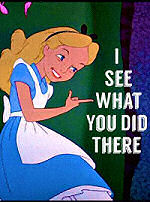
|

Towards the middle of the
night Jean Valjean woke.
Jean Valjean came from a poor peasant family
of Brie.
He had not learned
to read in childhood.
When he
reached man's estate, be became a tree pruner..
His mother was
named Jeanne Mathieu; his father was called Jean Valjean or Vlajean, probably a
sobriquet, and a contraction of viola Jean, "here's Jean."
Jean Valjean was of that
thoughtful but not gloomy disposition which constitutes the peculiarity of
affectionate natures.
On the whole there was something decidedly
sluggish and insignificant about Jean Valjean in
appearance.
Jean
Valjean had lost his father and mother early.
His mother died of
a milk fever, not properly
attended.
His father, a tree pruner, had been killed by a
fall.
All that remained to Jean Valjean was a sister older than himself,
a widow with seven
children, boys and girls.
This sister had brought up Jean Valjean, and
so long as she had a husband she lodged and fed her young brother.
The
husband died.
The eldest of the seven children was eight years old.
The youngest, one.
Jean Valjean had just attained his
twenty-fifth year.
He took the father's place, and, in his turn,
supported the sister who had brought him up.
This was done simply as a
duty and even a little churlishly on the part of Jean Valjean.
Thus his
youth had been spent in rude and ill-paid toil.

About 200 people died in
this small Tollense valley.
Based on the forensic evidence, these
people were murdered.
A battle was fought with wooden knobsticks,
arrows with flint arrowheads and bronze arrowheads, spears with bronze spear
tips, axes with bronze axe heads, bronze swords and knives.
This was an
attack by an armed gang on a caravan.
Bronze is an alloy consisting
primarily of copper, commonly with about 12% tin and often with the addition of
other metals (such as aluminium, manganese, nickel or zinc) and sometimes
non-metals or metalloids such as arsenic, phosphorus or silicon.
The most important element in this mixture is
tin.
No tin - no bronze, no
bronze - no bronze weapons.
Copper itself is too soft and mixed with
other elements too brittle.
During the Bronze Age
tin was more valuable than
gold. |
Jean
Valjean had never known a "passionate
woman".
Jean Valjean had not had
time for romance.
Jean Valjean returned at
night weary, and ate his broth without
uttering a word.
His sister, Jeanne, often took the best part of his
repast from his bowl while he was eating, a bit
of meat, a slice of bacon, the heart of the cabbage, to give to one of her
children.
As he went on eating, with his head bent over the table and
almost into his soup, his long hair falling about his bowl and concealing his
eyes, he had the air of perceiving nothing.
Not
far from the Valjean thatched cottage, on the
other side of the lane, was a farmer's cow named Marie-Claude.
The
Valjean children, habitually famished, sometimes went to borrow from
Marie-Claude a pint of milk, in their mother's name, which they drank behind a
hedge or in some alley corner, snatching the jug from each other so hastily
that the little girls spilled it on their aprons and down their necks.
If their mother had known of this marauding, she would have punished
the delinquents severely.
Jean Valjean gruffly and grumblingly paid
Marie-Claude for the pint of milk behind their mother's back, and the children
were not punished.
In pruning season Jean Valjean earned eighteen sous
a day; then he hired out as a hay maker, as laborer, as neat herd on a farm, as
a drudge.
Jean Valjean did whatever he could.
His sister worked
also but what could she do with seven little children?
It was a sad
group enveloped in misery,
slowly starving.
A very hard winter
came.
Jean Valjean had no work.
The
family had no bread.
No bread
literally. Seven children!
One Sunday evening, Maubert Isabeau, the
Baker on the Church Square, was preparing to go to bed, when he heard a violent
blow on the grated front of his shop.
He arrived to see an arm pass
through a hole made by a blow from a fist, through the grating and the glass.
The arm seized a loaf
of bread and carried it off.
Isabeau ran out in haste; the robber
fled at the full speed.
Isabeau ran after him and stopped him.
The thief flung away the loaf, but
his arm was still bleeding.
It was Jean Valjean. This took place in
1795.
Jean Valjean was taken before the tribunals
for theft, breaking and
entering an inhabited house at night.
He had a gun which he used better than
any one else on Earth, he was a bit of a poacher, and this injured his
case.
There exists a legitimate
prejudice against poachers.
A poacher, as a smuggler, smacks
strongly of a brigand.
Nevertheless, we will remark cursorily, there is
still an abyss between this race of
men and the hideous assassin.
The poacher lives in the
forest, the smuggler lives in the mountains or on the sea.
Cities make ferocious men as they
make corrupt them.
The mountain, the sea, the
forest, make savage
men; they develop a
fierce side without destroying the humane side.
Jean
Valjean was pronounced guilty.
The terms of the Code were explicit.
There occur formidable hours in our
civilization; there are
moments when the penal laws
decree a shipwreck.
In ominous minute society draws
back and consummates the irreparable abandonment of a sentient being!
Jean Valjean was condemned to five years in the galleys.
On the
22d of April, 1796, the victory of Montenotte, won by
General of the French army
Napoleon Bonaparte was announced in Paris; on that same day a great gang of
galley-slaves was put in
chains at Bicetre.
Jean Valjean formed a part of that gang.
An
old turnkey of the prison, who is now nearly eighty years old,
still recalls perfectly that
unfortunate wretch who was chained to the end of the fourth line, in the
north angle of the courtyard.
He was seated on the ground like the
others.
Jean Valjean did not seem to
comprehend his position,
except that it was horrible.
It is
probable the vague ideas of
an ignorant man concerning his plight created
a dissociated state.
While the bolt of his iron collar was being riveted
behind his head with heavy blows from the hammer, his
tears stifled impeded his
speech; he only managed to say from time to time, "I was a tree pruner at
Faverolles."
Then still sobbing, he raised his
right hand and lowered
it gradually seven times, as though he were touching in succession seven heads
of unequal heights, and from this gesture it was divined that the thing which
he had done, whatever it was, he had done for the sake of clothing and
nourishing seven little children.
Victor Hugo, Les
Miserables |
|

 |
This web site is not a commercial web site and
is presented for educational purposes only.

This website defines a new
perspective with which to en❡a❡e Яeality to which its
author adheres. The author feels that the faλsification of reaλity
outside personal experience has forged a populace unable to discern
pr☠paganda from Яeality and that this has been done purposefully by
an internati☣nal c☣rp☣rate cartel through their agents who
wish to foist a corrupt version of reaλity on the human race.
Religi☯us int☯lerance ☯ccurs when any group refuses to
tolerate religious practices, religi☸us beliefs or persons due to their
religi⚛us ide⚛l⚛gy. This web site marks the founding of a
system of philºsºphy nªmed The Truth of the Way of the
Lumière Infinie - a rational
gnostic mystery
re☦igion based on reaso🐍 which requires no leap of faith,
accepts no tithes, has no supreme leader, no church buildings and in which each
and every individual is encouraged to develop a pers∞nal relati∞n
with Æ∞n and Sustainer through the pursuit of the knowλedge of
reaλity in the hope of curing the spiritual c✡rrupti✡n that
has enveloped the human spirit. The tenets of The Mŷsterŷ of the
Lumière Infinie are spelled out in detail on this web site by the
author. Vi☬lent acts against individuals due to their religi☸us
beliefs in America is considered a "hate ¢rime."
This web site in
no way c☬nd☬nes vi☬lence. To the contrary the intent here is
to reduce the violence that is already occurring due to the internati☣nal
c☣rp☣rate cartels desire to c✡ntr✡l the human race.
The internati☣nal c☣rp☣rate cartel already controls the world
central banking system, mass media worldwide, the global indus✈rial
mili✈ary en✈er✈ainmen✈ complex and is responsible for
the collapse of morals, the eg● w●rship and the destruction of
gl☭bal ec☭systems. Civilization is based on coöperation.
Coöperation with bi☣hazards of a gun.
American social mores
and values have declined precipitously over the last century as the corrupt
international cartel has garnered more and more power. This power rests in the
ability to deceive the p☠pulace in general through mass media by pressing
emotional buttons which have been πreπrogrammed into the
πoπulation through prior mass media psych☣l☣gical
☣perati☣ns. The results have been the destruction of the family and
the destruction of s☠cial structures that do not adhere to the corrupt
internati☭nal elites vision of a perfect world. Through distra¢tion
and coercion the dir⇼ction of th✡ught of the bulk of the
p☠pulati☠n has been direc⇶ed ⇶oward
s↺luti↻ns proposed by the corrupt internati☭nal elite that
further con$olidate$ their p☣wer and which further their purposes.
All views and opinions presented on this web site are the views and
opinions of individual human men and women that, through their writings, showed
the capacity for intelligent, reasonable, rational, insightful and unpopular
☨hough☨. All factual information presented on this web site is
believed to be true and accurate and is presented as originally presented in
print media which may or may not have originally presented the facts
truthfully. Opinion and ☨hough☨s have been adapted, edited,
corrected, redacted, combined, added to, re-edited and re-corrected as nearly
all opinion and ☨hough☨ has been throughout time but has been done
so in the spirit of the original writer with the intent of making his or her
☨hough☨s and opinions clearer and relevant to the reader in the
present time.
Fair Use Notice

This site may contain
copyrighted material the use of which has not always been specifically
authorized by the copyright owner. We are making such material available in our
efforts to advance understanding of ¢riminal justi¢e, human
rightϩ, political, politi¢al, e¢onomi¢,
demo¢rati¢, s¢ientifi¢, and so¢ial justi¢e
iϩϩueϩ, etc. We believe this constitutes a 'fair use' of any
such copyrighted material as provided for in section 107 of the United States
Copyright Law. In accordance with Title 17 U.S.C. Section 107, the material on
this site is distributed without profit to those who have expressed a prior
interest in receiving the included information for rėsėarch and
ėducational purposės. For more information see:
www.law.cornell.edu/uscode/17/107.shtml. If you wish to use copyrighted
material from this site for purposes of your own that go beyond 'fair use', you
must obtain permission from the copyright owner. |
 Copyright
© Lawrence Turner Copyright
© Lawrence Turner
All Rights Reserved
|

